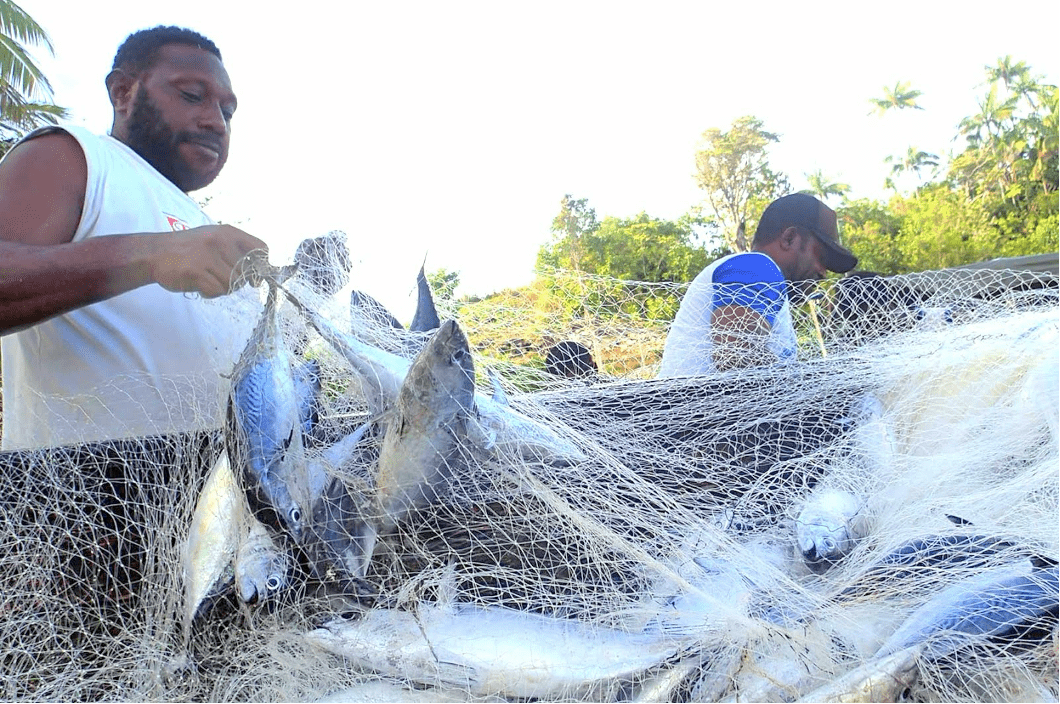The life of the Papuans as fishermen has been typical from the time of their grandparents until now, as it is modern era. Fish caught by fishermen has long been one of the main sources of protein supplementing the food of Papuans. Papua’s marine biodiversity is considered a paradise for fish lovers. Everything from people who want to eat fish to another one who want to be in the business of catching, buying and selling fish. This is not surprising, since fishing can be called the main industry of Papuans. In addition to meeting nutritional needs, fishing is carried out to meet economic needs to support income.
Fish caught by Papuan fishermen include tuna, cakalang and tongkol. The last mentioned fish, namely tongkol, has a higher local value than the other two fish. The reason is that tongkol is often used as a dish, namely ikan kuah kuning (fish in yellow sauce), which is the main menu of the typical Papuan food, papeda. For ikan kuah kuning, tongkol is used because the texture and taste are considered more suitable and tastier. At the same time, tuna and cakalang are more often used as products from the domestic market for export.
Papuan fishermen receive special attention from the Papuan provincial government. Education is carried out to improve the quality and capacity of human resources, one of which is fishermen. A lot of attention is paid to the skills of the fishermen, as they are usually talented and have the knowledge of catching fish that has been passed down from generation to generation by their grandparents. The government also offers empowerment programs to meet the needs of fishermen. It starts with helping to distribute fish, especially tuna and cakalang that can enter the export market, to meet the most basic needs of fishermen – tools to catch fish.
The Papuan government’s empowerment program aims to help Papuan fishermen to travel longer distances, not just around the bay, to get better quality and larger quantities of fish. About 80% of Papuan fishermen are equipped with modern boats and advanced equipment. This number is increasing every year. One of the most greatest efforts is GPS, so that fishermen do not get lost in the currents and do not enter the borders of other countries. Fishermen are also trained to use modern fishing equipment that does not cause side effects that harm nature, but still allows them to catch as many fish as possible.
In the future, it is hoped that all fishermen in Papua will have access to advanced and modern equipment, taking into account the quality of the fishermen. The needs of the Papuans themselves in their daily life can be met, as well as the needs of foreign markets, which also demand high quality fish, which of course comes from Papua. It is indeed necessary to cooperate with many countries. The authorities must always monitor the progress of the fishermen and provide assistance as needed. Other countries, as entrepreneurs, can also help to meet the needs of Papuan fishermen and provide mutual economic benefits.


